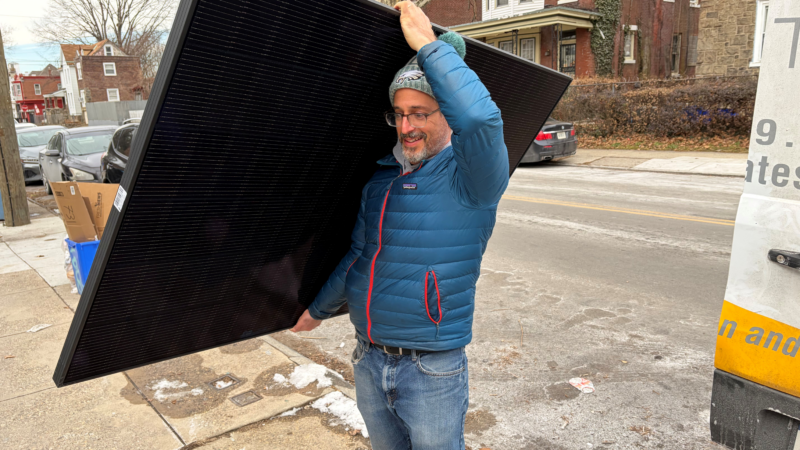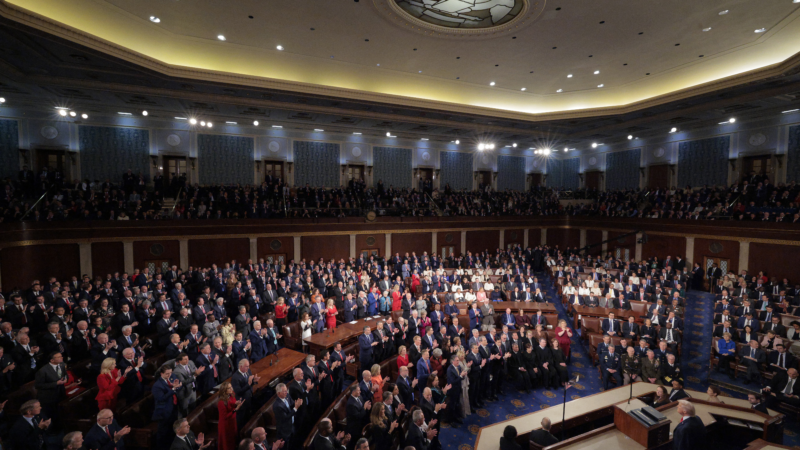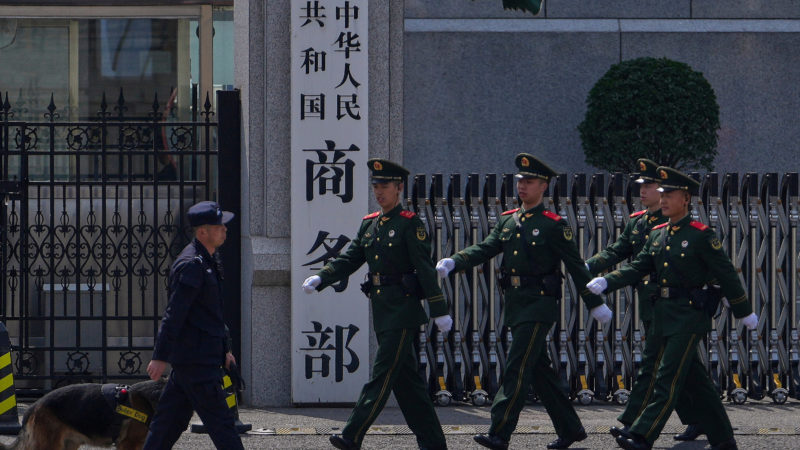The U.S. labor market remains solid, with employers adding 147,000 jobs last month
Employers continued to hire at a solid pace in June, which could encourage the Federal Reserve to take its time in cutting interest rates.
U.S. employers added 147,000 jobs last month, according to a report from the Labor Department Thursday. That’s roughly in line with the average pace of hiring over the last 12 months. Job gains for April and May were also revised up by a total of 16,000 jobs.
The unemployment rate fell to 4.1%, from 4.2% in May, as 130,000 people dropped out of the workforce.
Job gains were concentrated in health care and state and local government last month, while the federal government continued to shed jobs, cutting 7,000 in June.
Factories shed jobs
Despite the healthy job gains overall, there are signs of weakness — especially in the manufacturing sector.
Factories cut another 7,000 jobs last month after cutting a similar number the month before. President Trump’s tariffs continue to weigh on the manufacturing sector. A report from the Institute for Supply Management this week showed factory activity shrank in June for the fourth month in a row. Many of the factory managers surveyed for the report blamed Trump’s import taxes for a drop in factory business.
“The tariff mess has utterly stopped sales globally and domestically,” said an unnamed purchasing manager quoted in the ISM report. “Everyone is on pause. Orders have collapsed.”
Fed may not need to cut rates
For the Fed, the narrow but consistent job gains suggest policymakers will not be a hurry to cut interest rates.
“We watch very carefully for signs of unexpected weakness” in the labor market, Fed chairman Jerome Powell said Tuesday during a central bankers’ panel in Portugal. “We see a gradual cooling but we don’t really see that yet.”
Powell and his colleagues do expect to lower their benchmark interest rate later this year. Trump has been critical of the Fed chairman for not moving more aggressively.
When a horse whinnies, there’s more than meets the ear
A new study finds that horse whinnies are made of both a high and a low frequency, generated by different parts of the vocal tract. The two-tone sound may help horses convey more complex information.
Hundreds of American nurses choose Canada over the U.S. under Trump
More than 1,000 American nurses have successfully applied for licensure in British Columbia since April, a massive increase over prior years.
Trump’s many tariff tools mean consumer prices won’t go down, analysts say
The Supreme Court struck down President Trump's signature tariffs. But the president has other tariff tools, and consumers shouldn't expect cheaper prices anytime soon, economists say.
Tax credits for solar panels are available, but the catch is you can’t own them
Rooftop solar installers are steering customers toward leases instead of purchases. Federal tax credits for purchased systems have ended but are still available for leased ones.
5 takeaways from Trump’s State of the Union address
President Trump hit familiar notes on immigration and culture in his speech Tuesday night, but he largely underplayed the economic problems that voters say they are most concerned about.
China restricts exports to 40 Japanese entities with ties to military
China on Tuesday restricted exports to 40 Japanese entities it says are contributing to Japan's "remilitarization," in the latest escalation of tensions with Tokyo.







